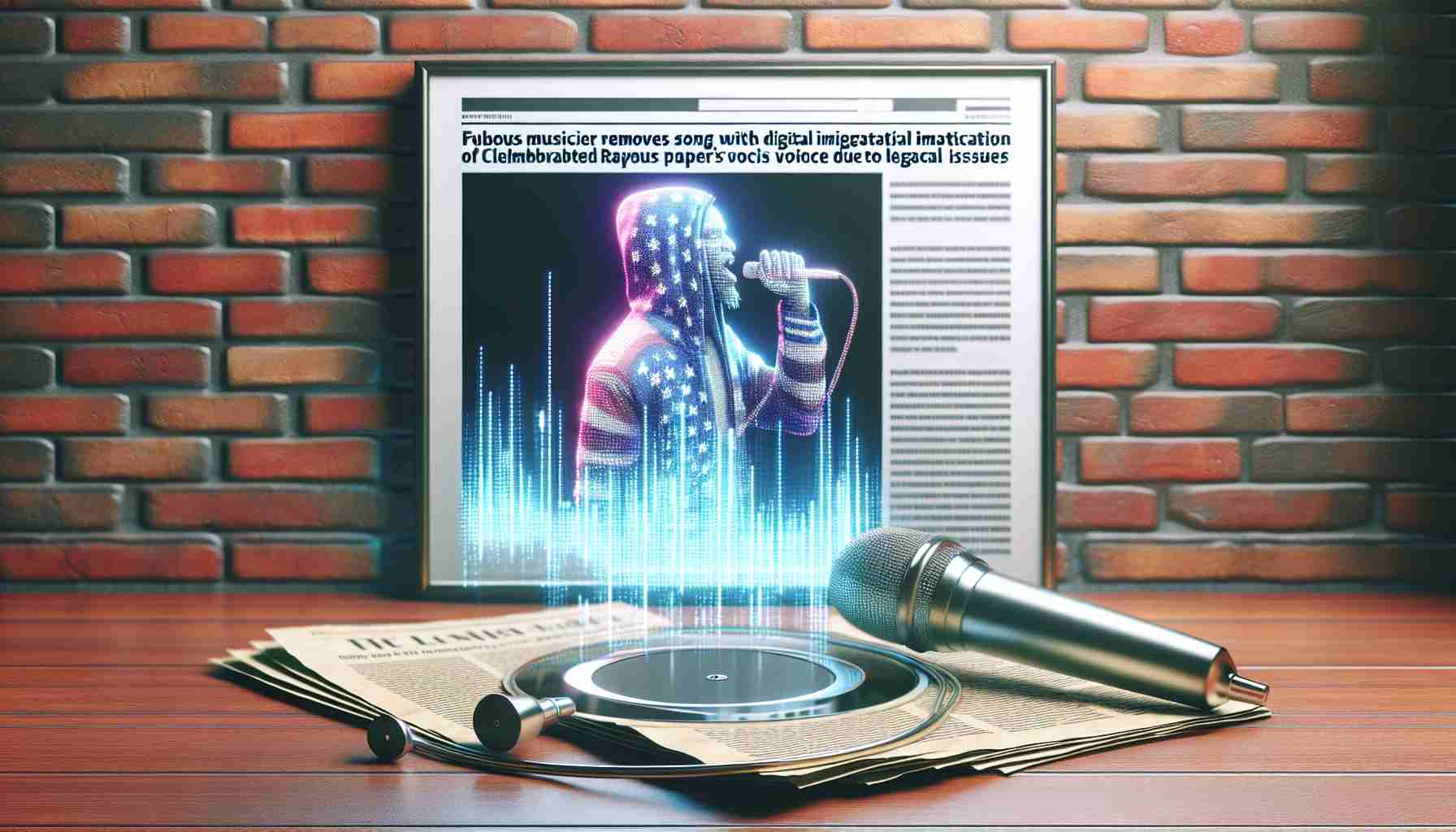Controversial Song Pulled After Tupac Estate’s Disapproval
Renowned rapper Drake, age 37, has caught the limelight not for chart-topping hits, but for a cutting-edge yet contentious use of artificial intelligence. His latest track, “Taylor Made Freestyle,” released officially last Monday, sparked a legal standoff as it featured the voice of the late Tupac Shakur, simulated using AI technology.
The move led to swift action from the legal representatives of Tupac’s estate, who expressed their disapproval. Despite Tupac’s untimely passing in 1996, his legacy remains fiercely protected. The attorneys underlined that there was no authorization for the rap icon’s voice to be replicated or used in any form, asserting that this usage could tarnish Tupac’s prestigious musical heritage.
Drake Responds to Legal Pressure
The reaction from Tupac’s estate was prompt and direct, culminating in a 24-hour ultimatum delivered to Drake. He was faced with a choice: remove the song or confront potential legal consequences. Drake chose to de-escalate the situation by withdrawing the track from social media and avoiding any further distribution through music platforms.
The debate over the ethical implications of artificial intelligence in the creation of new music experiences has been reignited by this incident. Meanwhile, Drake, who had previously released a song with an AI-generated voice of Snoop Dogg, has yet to issue a formal statement or discuss the matter publicly. Snoop Dogg’s response to his AI voice was minimal and communicated through social media emoticons. This event has left both fans and legal experts pondering the future of posthumous digital collaborations.
Important Questions and Answers:
1. What are the legal considerations of using AI to replicate a deceased artist’s voice?
Using AI to replicate a deceased artist’s voice involves copyright, right of publicity, and inheritance laws which may vary by jurisdiction. The estate of the artist often holds the legal rights to authorize or oppose the use of the artist’s voice or likeness.
2. How does AI-generated music affect the legacy of deceased artists?
AI-generated music could potentially tarnish the legacy of a deceased artist by creating new works that the artist did not approve or curate. It raises concerns about maintaining the authenticity and integrity of the artist’s discography.
3. What are the ethical implications of using AI in this way?
Ethically, recreating a deceased artist’s voice using AI raises questions about consent and respect for the artist’s original works. It also opens up debates about the limits of technology in art and whether it’s appropriate to create posthumous works without direct permission.
Key Challenges or Controversies:
– Authenticity and Consent: Questions arise about authenticity when posthumous music is released without direct consent from the artists themselves. There is concern over whether these AI-generated tracks truly represent the artists’ visions and choices.
– Legal Rights of Estates: The rights of estates to control the use of a deceased artist’s likeness and art remain a controversial challenge. There is often a thin line between honoring an artist and exploiting their legacy for profit.
– Moral Considerations: Beyond legality, there are moral considerations. Should an artist’s work be subject to manipulation after their death? Can consent be presumed or transferred in such cases?
Advantages and Disadvantages:
– Advantages:
– AI technology can keep the music of deceased artists relevant and introduce them to new generations.
– Offers a way for fans to experience new music from their favorite artists who have passed away.
– Disadvantages:
– Runs the risk of misrepresenting an artist’s intentions or style.
– May violate intellectual property rights and the right of publicity.
– Potential to harm the artist’s legacy and fanbase if the posthumous work is not well-received.
For further exploration into related topics, you might consider visiting RIAA (Recording Industry Association of America) or WIPO (World Intellectual Property Organization), which cover issues related to music rights and intellectual property, respectively.
Please note that these links are provided for informational purposes only, and they should not be construed as legal advice or endorsement of specific viewpoints expressed within those sites.

